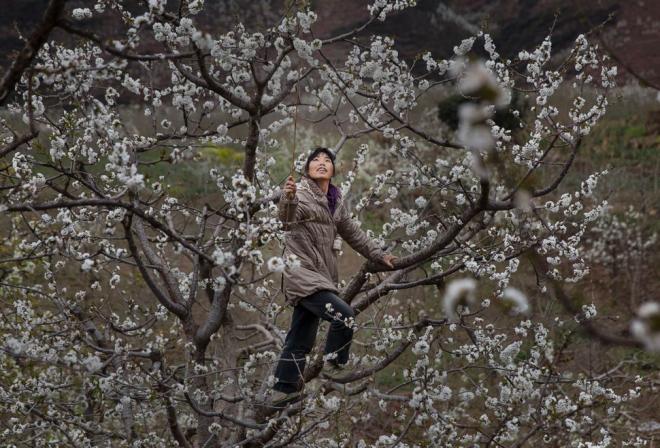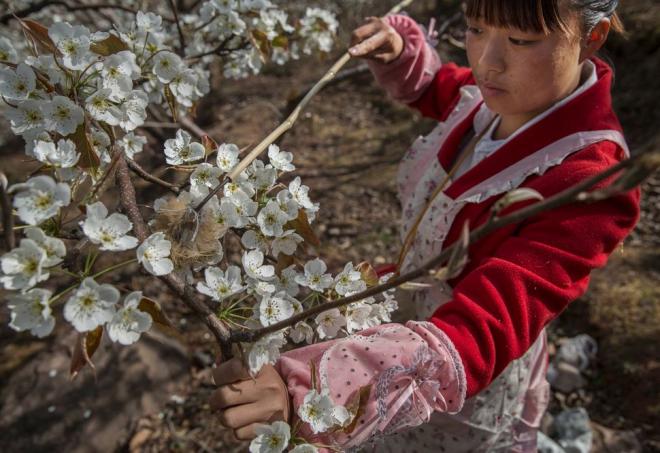In recent years, Chinese farmers have been forced to hand-pollinate their trees. The reason behind this are pesticides which in some areas destroyed an inhabited system of pollinators.

In large regions pesticides extinct pollinators and with them one of the best pollinator on the world - bees.
People in China are using their children (and other generation) to climb up to the highest blossoms and hand pollinates their trees, and in the end, unfortunately, humans are doing the work bees did before.
The worst stories are coming from the apple and pear orchards of southwest China, where bees have been destroyed by pesticides and their natural habitat have been eradicated. As a number of Chinase people is growing, they have a big demand for food and more land has been brought into agricultural production and it is allowed to farmers to use pesticides in growing.
New pesticides and fertilizers are increasing the average yield of food on land but they also distort the natural balance.

In some parts of China, hand pollination can actually cost less than renting bees to pollinate because farmers which pollinate by hand are cheap but we need to think long term and ask ourselves can we afford to our earth life without bees?
With a little effort, we can avoid hurting pollinators and have a world which takes care of the environment. Every step is important and you can help by not using pesticides in your garden or farming or at least keep it on the minimum and try to find solutions which won't hurt pollinators as without them agriculture could collapse since they are the only ones responsible for pollinating.
Some studies in Europe and North America are showing that it is possible to increase the population of pollinators by planting wildflowers and leaving natural vegetation on life so you can support pollinators also with this little effort.
Sources of photos: https://www.freshplaza.com/article/9107955/china-fruit-trees-pollinated-by-hand-due-to-a-lack-of-pollinating-insects/